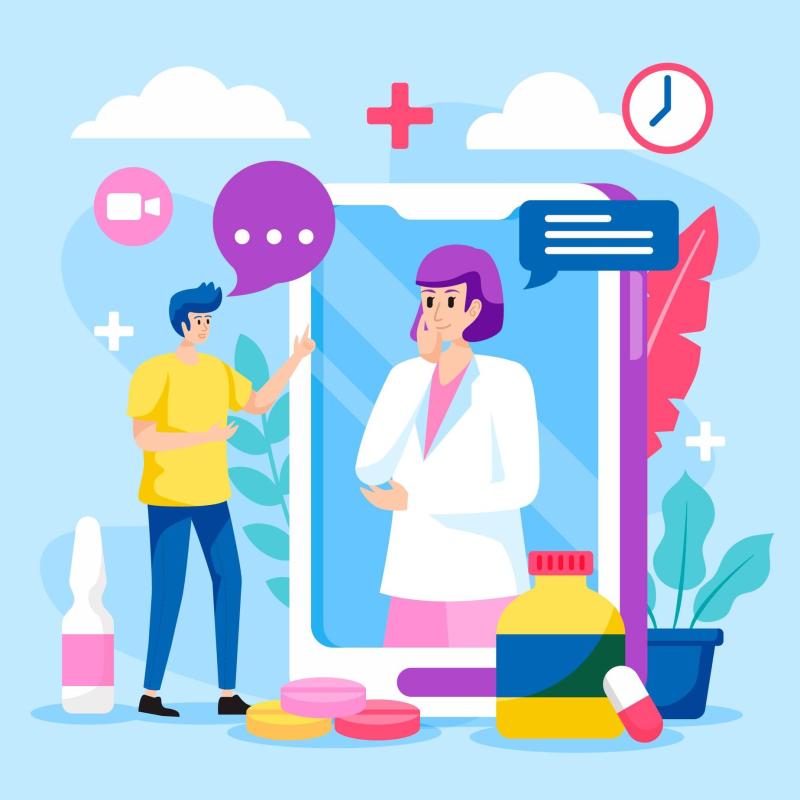The Role of APIs in Driving Innovation in Healthcare Software

The healthcare industry is experiencing a digital transformation, and at the heart of this revolution are Application Programming Interfaces (APIs). APIs have become essential tools in healthcare software development, enabling seamless integration, improving interoperability, and fostering innovation. As healthcare organizations seek to deliver better patient outcomes and streamline operations, APIs are playing a pivotal role in driving innovation across the sector.
What Are APIs and Why Do They Matter in Healthcare?
APIs are sets of protocols and tools that allow different software applications to communicate with each other. In healthcare, they serve as the connectors between various systems, such as Electronic Health Records (EHR), medical devices, and patient management software. This seamless communication is crucial in an industry where timely access to data can mean the difference between life and death.
Traditionally, healthcare data has been siloed, with different systems unable to communicate effectively. APIs break down these barriers by allowing disparate systems to share information, enabling a more holistic approach to patient care. This enhances not only the speed at which care is delivered but also the quality of care, as providers have access to comprehensive, real-time data.
Enhancing Interoperability
One of the most significant challenges in healthcare is achieving interoperability—ensuring that different systems, devices, and applications can work together to exchange and interpret data. APIs provide the foundation for interoperability by creating a bridge between various healthcare systems. Whether it’s between EHR systems, pharmacy management software, or patient portals, APIs facilitate the exchange of vital patient information, ensuring that healthcare providers can access accurate and up-to-date data.
Driving Innovation in Patient Care
APIs are driving innovation by allowing healthcare providers to develop more advanced, patient-centric software solutions. By enabling third-party applications to connect to core healthcare systems, APIs open the door to creating specialized apps that can address specific needs in patient care. For example, healthcare organizations can use APIs to develop apps that monitor chronic conditions, provide medication reminders, or offer telehealth services.
Streamlining Operations and Reducing Costs
APIs also play a critical role in streamlining operations within healthcare organizations. By automating the flow of data between systems, APIs reduce the need for manual data entry, minimizing the risk of errors and saving time. This is particularly important in areas like billing, where inaccuracies can lead to financial losses or compliance issues.
Moreover, APIs enable healthcare organizations to integrate new software solutions without the need for costly and time-consuming system overhauls. This flexibility allows organizations to adopt new technologies more quickly, ensuring they stay competitive in an evolving healthcare landscape.
Accelerating Research and Development
APIs are not only beneficial for healthcare providers but also for researchers and developers. By providing access to vast amounts of healthcare data (while ensuring patient privacy), APIs can accelerate the development of new treatments, medical devices, and software solutions. Researchers can use APIs to gather insights from real-world data, leading to faster and more effective innovations in areas like personalized medicine and AI-powered diagnostics.
Overcoming Challenges with APIs in Healthcare
Despite the many benefits, implementing APIs in healthcare software development is not without its challenges. Security and privacy are top concerns, as APIs expose data that must be protected under regulations such as HIPAA. Ensuring that APIs are secure and compliant with healthcare standards is crucial to maintaining patient trust and avoiding legal repercussions.
Conclusion
APIs are revolutionizing healthcare software development by fostering innovation, enhancing interoperability, and streamlining operations. As the healthcare industry continues to embrace digital transformation, APIs will play an increasingly critical role in enabling seamless data exchange, improving patient outcomes, and driving the next generation of healthcare innovations. Whether through advanced patient care apps, improved data access for providers, or accelerated research, APIs are shaping the future of healthcare software in powerful ways.
Post Your Ad Here
Comments